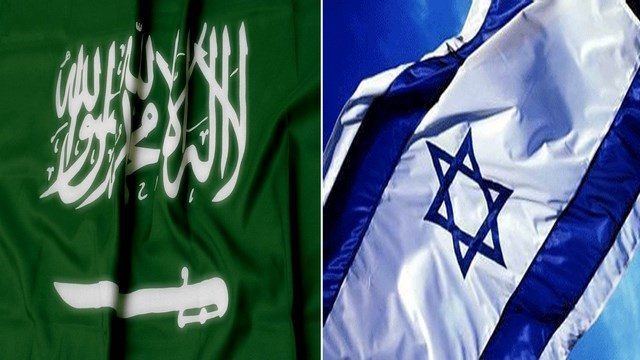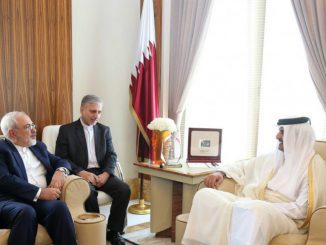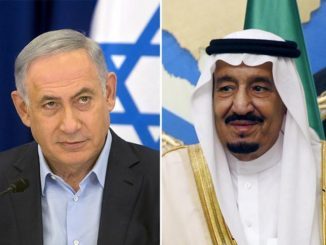
A senior Israeli official has met with a visiting former Saudi military general, the Israeli Foreign Ministry said Sunday, Anadolu Agency reported.
The meeting marks a rare public engagement between countries that have no official relations.
Foreign Ministry spokesman Emmanuel Nahshon says Sunday that Director General Dore Gold met with Anwar Eshki at a Jerusalem hotel. Eshki currently heads a Saudi think tank in Jeddah but is believed to have close ties with the kingdom’s rulers.
The Jerusalem Post newspaper said Eshki led a delegation of “businessmen and academics” on a mission to promote a stalled Saudi-led 2002 Arab peace initiative.
Eshki. The spokesman, however, declined to give further details about the meeting.
It said that he met Major General Yoav Mordechai, head of the military body that coordinates Israeli activities in the West Bank and Gaza, and talked Friday in the West Bank to a group of Israeli opposition MPs.
Eshki and Gold shared a platform in June last year at the Washington headquarters of the Council on Foreign Relations and “met to discuss opportunities and challenges in the Middle East” the council said on its website at the time.
“Their speeches focused on the danger Iran posed to their countries, and they revealed that they had been in secret discussions for a year, and had now decided to go public about their talks,” it added.
The Times of Israel website, meanwhile, said Eshki met on Saturday with Gold, the head of the army’s operations in the occupied Palestinian territories Major-General Yoav Mordechai and several Israeli politicians.
Saudi Arabia does not have diplomatic relations with Israel.
Eshki, who currently heads a Saudi think tank in Jeddah, arrived in Ramallah last week and held talks with Palestinian Prime Minister Rami al-Hamdallah.
Speaking to Israeli Army Radio on Sunday, Eshki said a Palestinian state would be good for Israel’s security.
He said that a two-state solution would undermine alleged Iranian attempts to sponsor armed groups in the Middle East.
Arab countries would not recognize Israel until a peace deal was completed with Palestinians, said Eshki, who delegation consisted of businessmen and academics.
Saudi Arabia has long promoted the Arab Peace Initiative proposal for a two-state solution, which would see Israel recognized by its Arab neighbors in exchange for the creation of a Palestinian state, with occupied East Jerusalem as its capital.
Last month, however, Israeli Prime Minister Benjamin Netanyahu said that he would not accept the initiative’s key condition that Israel should withdraw from land occupied during the 1967 Arab-Israeli war, including East Jerusalem.



